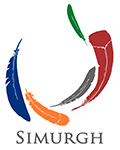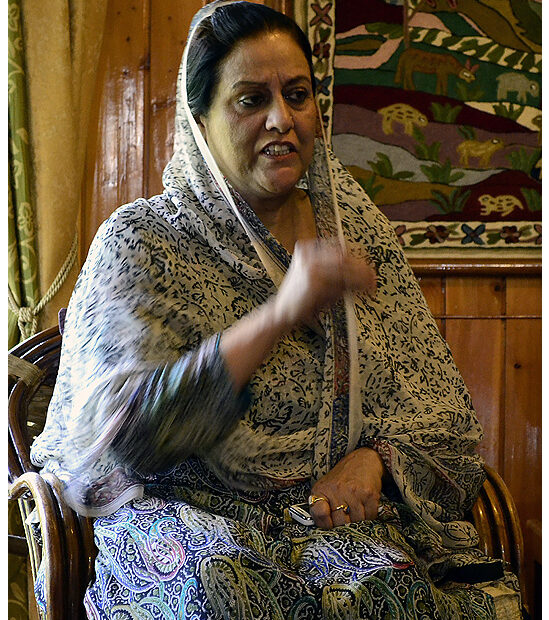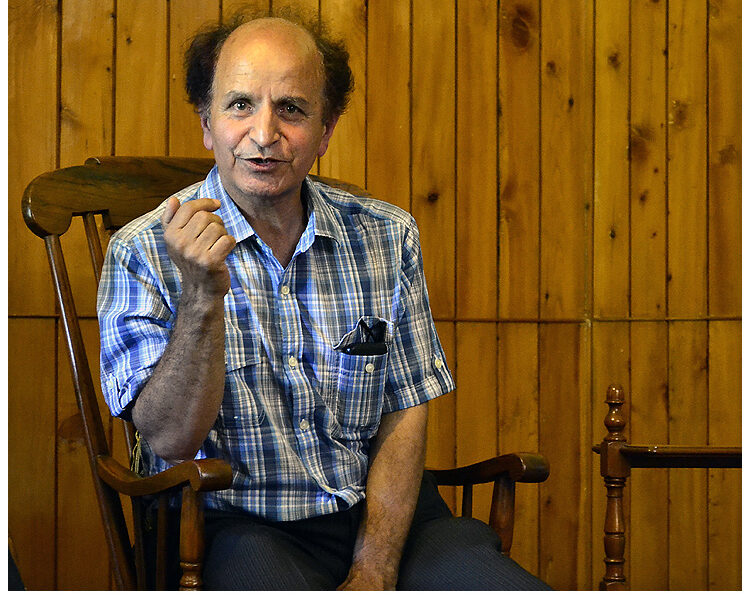
Kashmir 2015/2016
After the devastating floods in Kashmir in 2014, several libraries of books and manuscripts were destroyed or damaged, including the precious collection at the University of Kashmir in Srinagar. Literary communities across the subcontinent shared the feeling of loss as a common literary heritage was irrevocably diminished. The Simurgh Project (2015 and 2016) was, in some sense, a response to this loss. What was intended as an intensive translation workshop for major Kashmiri poets of the 20th century, became a gathering of contemporary poets, critics, teachers and translators, united in both mourning and celebration in one of the most troubled places in the world. Apart from readings and recitations, our time together was divided between lectures by senior poets, writers and critics on themes, images, tropes and genres in Kashmiri poetry, and close readings of our selected texts. This was followed by intensive translation work, each translator being given individual attention as well getting the benefit of group work and collaborative sessions. There were also guided discussions about issues and concerns in the practice of translation.
We were honoured by the presence of Prof. Rehman Rahi, multiply awarded poet (including the Jnanpith in 2007) who recited and discussed his works, and engaged closely with translators and other participants. Other well-known poets who were with us were Naseem Shafaie, Shafi Shauq, Rafiq Raaz and Rashid Majrooh as well as translators and critics Prof. Neerja Mattoo, Prof. Ghulam Rasool Malik and Mohd. Yousuf Taing.

Participating translators were asked to choose poets and texts that they believe constitute landmarks and milestones in the language, representing its rich, multilayered and complex history. The works ranged from those of early Kashmiri writers such as Lal Ded and Nund Rishi, to modern poets such as Zinda Koul, Dina Nath Nadim and Rehman Rahi. Participants confronted such critical issues as unstable texts from the oral tradition, meanings and interpretations from esoteric mystical practices that colour poetry, and how to carry form and structure when translating into another language.
Our participating translators were Sonam Kachru, Kirti Kaul, Heena Khan, Mufti Mudasir, Maroof Shah, Neelima Mam Wazir, and Gowhar Yaqoob.
While these workshops were intended to produce new works for publication, we were unable to meet that commitment as fully as we would have liked. Among other circumstantial and methodological issues, we realised that the texts we were working with were profoundly unstable, with arguments and discussions erupting about the order of verses, the words in them, and the verses themselves. At this point, we felt that as important as it is to translate classical works, it is equally important to record and document these multiple versions, all claiming to be the poets’ ‘authentic’ and complete oeuvre. This process is not to ‘stabilise’ the oral texts. Rather, it is to represent the oral tradition as it is – contested, known, recited, beloved.
In 2017, the Simurgh Project was folded into the Yali Project with a broader focus on translations of contemporary works from other Indian languages.









